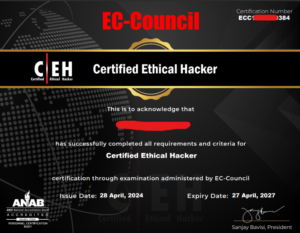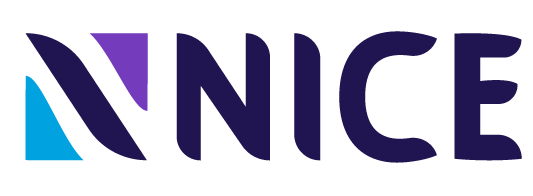Ethical Hacking Course in Kolkata - CEHv12 Certification
- Powered by

- Assured Job with 4LPA to 9LPA*
- Course Aligned to CEH Curriculum
- 90% Practical Topics
Our Ethical Hacking course in Kolkata equips you with the knowledge and skills to defend against cyberattacks and secure digital infrastructures. Whether you are a professional looking to upskill or a newcomer to the field, this CEH training in Hyderabad is designed to meet your needs. Come meet our ethical hacking institute in Hyderabad

Book a free Demo class now!
Check out the program and fee details in our brochure
- Program Overview
- Curriculum
- Tools
- Certificate and Examination
- Faculty
- Fees
- Placement Cell
- FAQ's
Ethical Hacking Training in Kolkata – Key Highlights
- Understanding the Fundamentals: Introduction to Ethical Hacking
- Hands-On Learning: Practical Application of Techniques
- Real-World Case Studies: Learning from Industry Experts
- Advanced Techniques: Mastering the Art of Ethical Hacking
- Certification and Accreditation: Paving the Path to Success
- Career Guidance and Placement Assistance: Launching Careers in Cybersecurity
Skills you will learn
Ethical Hacking Certification Course in Kolkata Overview
CEH course in Hyderabad offers a comprehensive education in safeguarding digital systems and data against cyber threats.
This program is designed to equip students with the knowledge and skills needed to protect organisation and individuals from cyberattacks, data breaches, and other online dangers. Students will gain a deep understanding of cyber security principles, including risk management, network security, ethical hacking, and digital forensics.
Ethical Hacking course provides hands-on experience with the latest tools and techniques used in the industry, ensuring that graduates are well-prepared for a career in cyber security
What is Cyber Security?
Cyber security is the practice of protecting systems, networks, and programs from digital attacks. These attacks are usually aimed at accessing, changing, or destroying sensitive information. Cyber security measures are essential for safeguarding data integrity and confidentiality.
What are the key components of Cyber Security?
There are several key components in cyber security. First, network security involves protecting a computer network from intruders. Second, information security ensures the privacy and integrity of data, both in storage and transit. Third, application security focuses on keeping software and devices free from threats. Lastly, operational security includes processes and decisions for handling and protecting data assets.
How Important is Cyber Security?
Cyber security is crucial for several reasons. It protects sensitive data from cyber-attacks. These can lead to identity theft, financial loss, and damage to reputation. Cyber security also ensures the safe operation of essential services like healthcare, banking, and utilities. Moreover, it supports the security of personal and organizational data against unauthorized access.
What is Ethical Hacking?
Ethical hacking involves legally breaking into computers and devices to test an organization’s defenses. These professionals, known as ethical hackers or white-hat hackers, use the same techniques as malicious hackers. However, they do so with permission from the system owner.
Roles and Responsibilities of Ethical Hackers
Ethical hackers play a vital role in cyber security. They identify vulnerabilities in systems before malicious hackers can exploit them. Ethical hackers also help organizations comply with security regulations. They conduct penetration testing, assess risks, and recommend corrective actions. Their work is essential in developing robust security policies and procedures.
How Ethical Hacking Enhances Cyber Security
Ethical hacking significantly enhances cyber security. By finding and fixing security flaws, ethical hackers prevent potential data breaches. They also raise awareness about cyber threats and the importance of maintaining strong security practices. Their proactive approach helps in building a more secure cyber environment.
No Coding Knowledge is required to take this course
The Duration for this course is 45 Days- Upto 80 Hours
Anyone with basic computer knowledge can take this course
Get a Complete guide on Ethical Hacking
Download now
Programs Key Points
Targeted Certification: EC Council
Level: Beginner to Intermediate
Durations: 80 hours *45 days [flexible timings]
Practical: 90% – 20+ Modules Covered
Prerequisite’s:
To be eligible, learners must have either a high school diploma or an undergraduate degree
Training Mode:
Offline Classroom Training
Online- Live Training
Selfpaced Training
For Admission
+91 9844046170
admission@digived.academy
Ethical Hacking Training Program
Curriculum
In the ever-evolving landscape of cybersecurity, the Certified Ethical Hacker (CEH) certification stands out as a pivotal credential for aspiring and seasoned professionals alike. The CEHv12 course curriculum, meticulously crafted to cover the latest techniques and tools, ensures that candidates are well-equipped to tackle modern cyber threats.
This module sets the stage by introducing candidates to the world of ethical hacking. It covers the basics of information security, threat vectors, and attack surfaces. Candidates learn about the various phases of hacking, including reconnaissance, scanning, gaining access, maintaining access, and covering tracks.
Footprinting and reconnaissance involve gathering as much information as possible about the target system. This module teaches candidates various techniques and tools used to collect data, such as WHOIS lookup, DNS enumeration, and social engineering.
In this module, candidates learn to use scanning tools to identify open ports, services, and vulnerabilities in the target network. Techniques such as network scanning, vulnerability scanning, and penetration testing are explored in depth.
Enumeration involves extracting detailed information about the target system. This module covers techniques for enumerating users, groups, shares, and services. Candidates also learn about SNMP enumeration, LDAP enumeration, and NTP enumeration.
This module focuses on identifying vulnerabilities in the target systems. Candidates are trained to use various vulnerability assessment tools to detect potential weaknesses. The module also covers risk assessment and mitigation strategies.
System hacking is the core of the CEHv12 curriculum. Candidates learn about different techniques to gain unauthorized access to systems, including password cracking, privilege escalation, and maintaining access. This module emphasizes practical, hands-on experience with tools like Metasploit.
Understanding malware threats is crucial for any ethical hacker. This module covers various types of malware, including viruses, worms, Trojans, and ransomware. Candidates learn how to detect, analyze, and mitigate malware threats effectively.
Sniffing involves intercepting and logging network traffic. This module teaches candidates about packet sniffing techniques, including the use of tools like Wireshark. Candidates learn to detect and defend against sniffing attacks.
Social engineering exploits human psychology to gain access to sensitive information. This module covers different types of social engineering attacks, such as phishing, baiting, and pretexting. Candidates learn how to recognize and defend against these attacks.
DoS attacks aim to disrupt the availability of services. This module explores various DoS attack techniques and tools, as well as defense mechanisms. Candidates learn how to identify and mitigate DoS attacks to ensure service continuity
Session hijacking involves taking control of an active session between a client and server. This module teaches candidates how session hijacking works, techniques used, and how to prevent such attacks. Hands-on exercises help solidify these concepts.
Intrusion Detection Systems (IDS), firewalls, and honeypots are critical components of network defense. This module covers techniques used by attackers to evade these defenses. Candidates learn how to configure and strengthen these systems to detect and prevent intrusions.
Web servers are often targeted by hackers due to the valuable information they host. This module teaches candidates about various web server attacks, such as directory traversal, parameter tampering, and web shell attacks. Defense mechanisms are also covered extensively.
Web applications are susceptible to numerous vulnerabilities. This module covers common web application attacks, including SQL injection, cross-site scripting (XSS), and cross-site request forgery (CSRF). Candidates learn to secure web applications against these threats.
SQL injection is one of the most critical web application vulnerabilities. This module delves into SQL injection techniques and how attackers exploit them to gain unauthorized access to databases. Candidates learn preventive measures to safeguard against SQL injections.
Wireless networks present unique security challenges. This module covers various wireless encryption protocols and attacks, such as WEP cracking, WPA/WPA2 attacks, and rogue access points. Candidates learn to secure wireless networks effectively.
With the proliferation of mobile devices, securing mobile platforms is essential. This module addresses vulnerabilities in mobile operating systems, applications, and devices. Candidates learn about mobile security threats and countermeasures.
The Internet of Things (IoT) introduces new security challenges. This module covers IoT architecture, attack vectors, and vulnerabilities. Candidates learn how to secure IoT devices and networks.
Cloud computing offers numerous benefits but also presents unique security risks. This module explores cloud computing models, security challenges, and best practices for securing cloud environments. Candidates gain insights into cloud security strategies.
Cryptography is essential for securing data. This module covers cryptographic principles, algorithms, and tools. Candidates learn about encryption, decryption, hashing, and digital signatures, and how to implement cryptographic techniques to protect data.
Tools used for Ethical Hacking CEH training program in Kolkata Covered



















Book a free Demo class now!
Check out the program and fee details in our brochure
Ethical Hacking Certification and Examination
Ethical Hacking certification from EC-Council-CEHv12 ensures industry credibility and acceptance, providing a robust foundation for your career advancement.


American National Standards Institute

ANSI National Accreditation Board

American council on education

Nice education consultancy
Our Ethical hacking Institutue Reviews
Rohit Roa
Cyber Security Analyst
Preethi sen
Security Architect
Prashanth
Student
Divya
Student
Shanthala
Student
Learn Experience
Ethical hacking Program Fees Structure
Program Fee
INR 45,000/-
+18 % GST
Payment Option
Our admissions close once the requisite number of participants enroll for the upcoming batch. Apply early to secure your seats.
Program Fee includes
- CEHv12 Examination Voucher
- Job / Internship Assistance Provided
- Tools and Labs Included
Start your Cyber Security Career Now
Download now
Ethical Hacking Admission Process
Our admissions close once the requisite number of participants enroll for the upcoming batch. Apply early to secure your seats.
Apply Online
Register Online, Upon submission, you will receive a confirmation email with further instructions.
Application Screening
Our counselors schedule video calls with learners and assist them in filling out the application accurately.
Join Program
program team conducts additional doubt-clearing sessions with industry experts to provide learners with practical and in-depth knowledge.
How our Ethical Hacking Placement Cell work

Job assistance

Resume Feedback

Mock Interview

Soft Skills
Frequently Asked Questions
Ethical hacking involves legally breaking into computers and devices to test an organization’s defenses.
Anyone with a basic understanding of computer networks and operating systems.
Topics include network security, penetration testing, malware analysis, and cryptography.
Basic knowledge of networking and operating systems.
Roles include penetration tester, security analyst, and security consultant.
Yes, upon successful completion of the course.
Why Digived tech is the best ethical hacking institute in Kolkata
Kolkata boasts top-tier training institutes renowned for their comprehensive curriculum and hands-on approach. The city’s thriving tech ecosystem makes it an ideal location for mastering ethical hacking skills.
How is CEH Training in digived tech Kolkata done?
Our CEH training in Kolkata prepares you for the Certified Ethical Hacker certification, a globally recognized credential. The course covers advanced hacking tools and techniques, ensuring you are well-equipped to tackle real-world cybersecurity challenges.
What to expect digived tech CEH training course
The ethical hacking training in Kolkata includes modules on network security, penetration testing, malware analysis, and more. You will gain practical experience through live projects and labs, making you job-ready.
How Many days is this ethical hacking course
Ethical hacking course in our institute will typically take 45 days or 80 hours
Ready to embark on an exciting journey in ethical hacking? Join our ethical hacking course in Kolkata today and take the first step towards a rewarding career in cybersecurity. Visit our website or contact us for more information and enrollment details.
